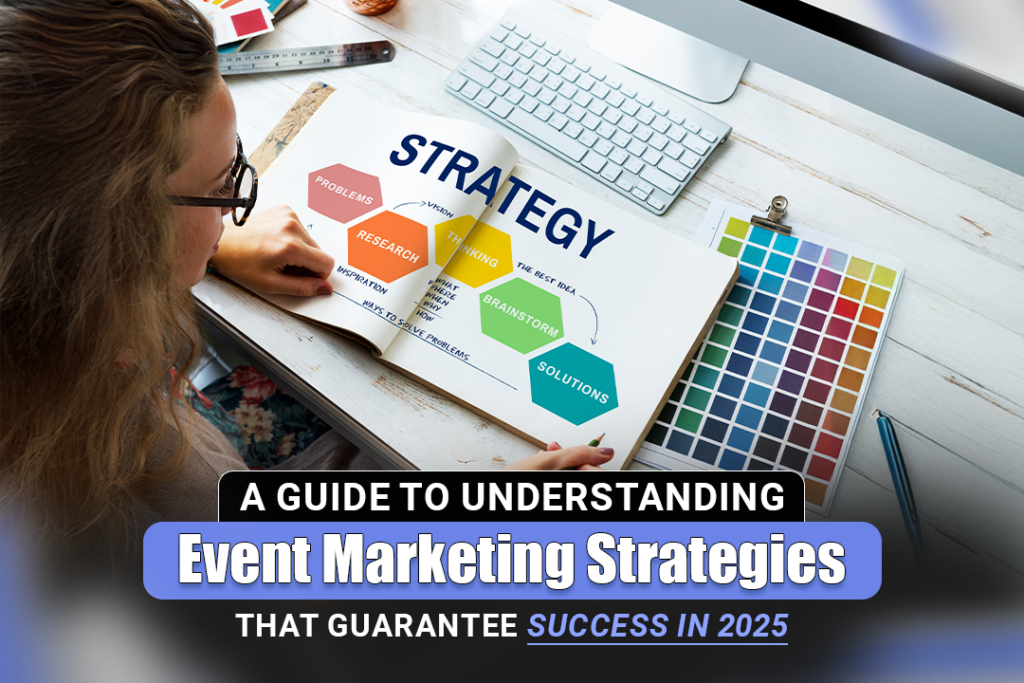
In this highly competitive industry, event marketers must strive to make their events stand out. They need to devise unique event marketing strategies to draw in the crowd, especially when other events compete with them, target the same audience, cover similar topics, occur in the same city, and so on. After all, event marketing is all about creating the required buzz before an event to gather maximum participation and bolster the overall attendee experience.
A strong event marketing strategy will not only spread the word about the event/conference but also help attract people from far and wide to register for it. Event marketers must devise an equally creative and flexible plan to make their event, whether in-person, virtual, or hybrid, a stellar success.
But what are event marketing strategies 2025, and what tools can event professionals use to make their events successful in 2025? In this article, we shall explore all that and more. Once you go through our comprehensive event marketing strategies guide, you can transform your event from a regular one to a memorable experience in 2025.
What Are Event Marketing Strategies?
When one speaks about event marketing strategies 2025, one refers to the techniques, tools, methods, and plans that event planners use to promote their conferences and garner more attendance. This may come across as advertising to a layman, but it’s so much more than that. Your typical event marketing strategy has to be all-encompassing. It must integrate a comprehensive approach, considering various elements like target audience identification, branding, content, and communication strategy, among other things, to garner attention for the event, forcing more and more people to participate.
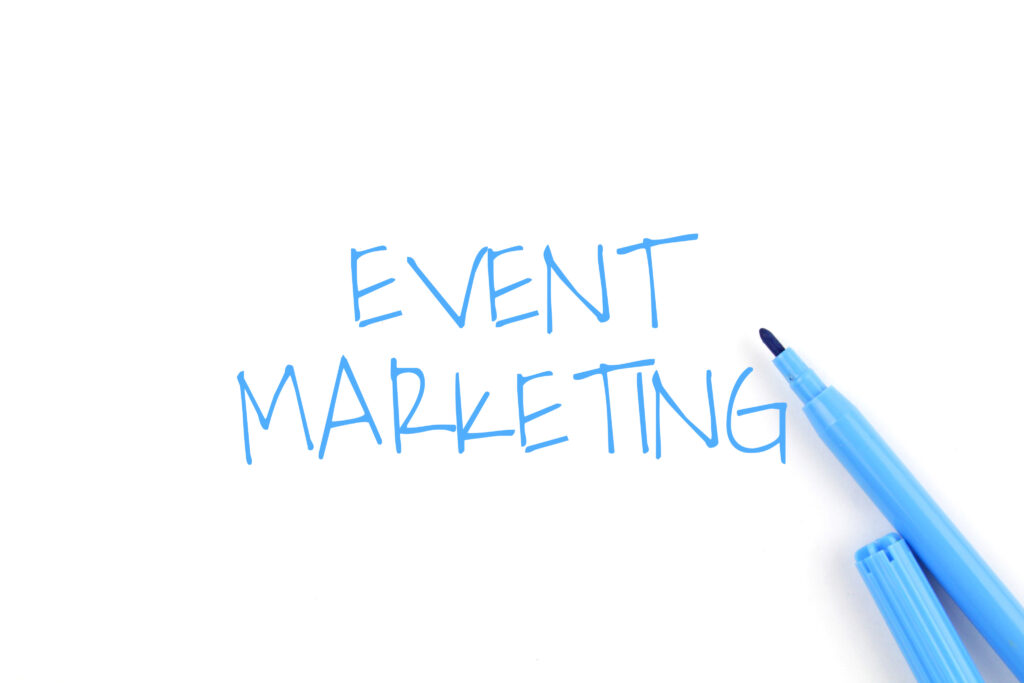
An event marketer may need to find the link between the event’s purpose and target audience to ensure they see some value in participating. This could include different event promotion platforms, such as social media, email marketing campaigns, digital advertising, and influencer marketing, to name a few. Event marketers can use these mediums to create buzz about the event and excite potential attendees.
Why Are Event Marketing Strategies Crucial?
While we have already established that event marketing strategies help promote an event and attract potential attendees, they are crucial for several other reasons, such as the ones mentioned below.
1. Establish Better Client and Industry Ties
One of the most important features of events is the networking opportunities they present to attendees. At events, one can meet industry stalwarts, build strong connections, and exchange contact information, all of which can lead to possible work opportunities in the future. The better one’s pre-event marketing promotion, the greater the crowd and the better the post-event conversation and networking at the event. That is why employing suitable event marketing strategies is vital to spreading the word about your event.
2. Garner a Higher Return on Investment
As an event marketer, one must think beyond ticket sales. Your event marketing strategy is successful when you attract the right sponsors to fund your event and associate their name with it. The right sponsorship and branding will get the right vendors in, dealers to set up their stalls, and speakers to speak at your event. A great event marketing plan gets you the right kind of attention and people to work with, who all contribute to you generating more income.
3. Generate New Leads
Thanks to the event marketing strategies, you will likely get more registrations when more people hear about the event. The more interested people are in your event, the more likely they will become possible leads for your business and keep returning as repeat attendees. This will help you create a long list of potential leads for your present and future events.
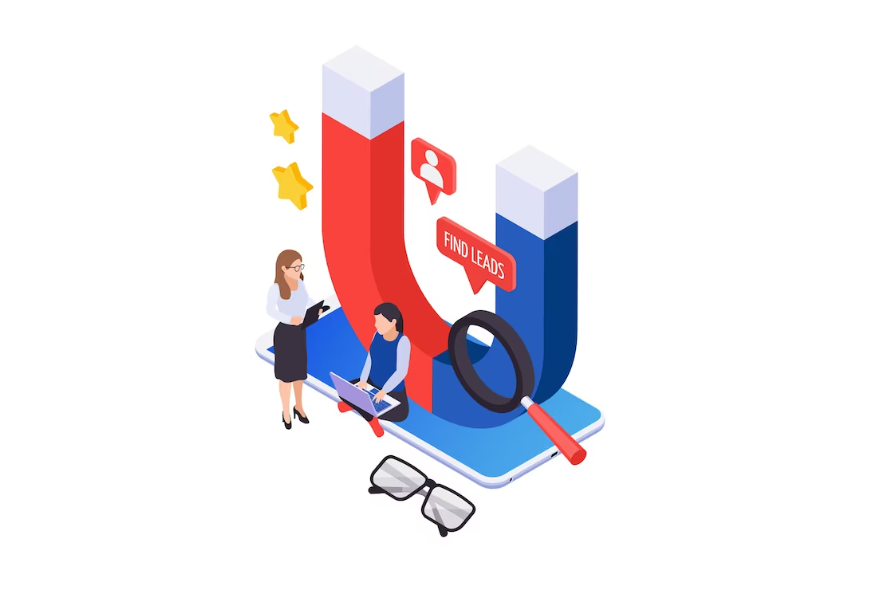
4. Raise Awareness
The right event marketing strategy will not just promote your event and get maximum registrations. It will also raise awareness within your industry and get people talking about any groundbreaking research being discussed at the event or any big announcement that could create waves in the industry. If your event marketing strategy can get people to take notice of your event and make it the next big thing in your industry, then you know you’re on the right track!
19 Event Marketing Strategies that Can Turn Your Event Into a Success
If you want your next event to succeed, here are 19 event marketing strategies 2025 to help you achieve your purpose.
1. Design a Captivating & Highly-Converting Event Landing Page
When marketing your event, you should design a dedicated and highly converting website landing page that promotes your event or campaign and persuades your attendees to register. It must typically consist of all information related to the event, such as the event date, location, and agenda, and a clear and concise Call to Action (CTA), such as “Register Now” or “Buy Tickets.”
In short, an event website’s landing page should be optimized for conversion rates, with clear headlines, social proof, a clear and appealing design, and simple navigation. As an event marketer, ensure your website doesn’t take too long to load on devices and mobile phones, as many customers/attendees use the latter as a medium to access the website.
2. Blog Regularly For Widening the Company’s Digital Presence
Event marketers must capitalize on blogging regularly as an effective marketing strategy. It helps them expand their event’s digital presence and keep everyone informed about its details or upcoming events. They can also include a CTA at the end of every blog post, which could drive registrations for the event in question.

Also, optimizing the content with relevant keywords and phrases could improve the blog rankings, increase the event website’s visibility, improve organic traffic, and drive registrations. Long-form content like blog posts allows event marketers to analyze any issue concerning the event industry or their event in particular. It enables them to explore their creative side. The key thing to understand here is that one must write engaging blog posts relevant to their audience and keep them captivated for a long time.
3. Leverage Social Media Platforms to Promote Your Event
Social media is one of the most effective ways to promote an event. Event organizers and marketers can create buzz about their event, connect with potential attendees, and influence their decision to attend. They can create event pages, posts, and videos on social media platforms like Facebook, Instagram, Twitter, and LinkedIn. These platforms can help organizers target specific demographics, influencing them to register for the event. Hashtags can be used to ensure the posts have a wider reach and engage a larger audience. It can also help organizers build a sense of community among patrons/attendees and allow the latter to leave their feedback and write about their experiences attending the event.
4. Seek Help from Influencers and Experts to Market Your Event
Most brands realize the importance of influencer marketing in promoting their products and services, so it is no surprise that event marketers are trying to do the same. Collaborating with influencers (that match your brand) to market your event will help you organically reach out to your target audiences and widen your scope of connecting with a larger audience across all social media platforms.
With the help of influencers, event professionals can quickly raise awareness about their event and garner registrations from potential attendees. Given that influencers use innovative and fresh content ideas to market your event campaigns, you will always have a supply of content strategy when it comes to your event marketing pursuits.
5. Provide Early Bird Discounts to Garner Higher Attendance
Event marketers often resort to offering early bird discounts as an effective marketing strategy to garner maximum exposure and participation for the event. By providing an early bird discount offer, event organizers can strive to create a sense of urgency and instill a sense of exclusivity among attendees. The offer is usually available for a limited period, and the reason behind doing so is to get attendees to act promptly and make the most of the opportunity.
So, suppose you are organizing an event and want to garner the attention of existing and potential attendees. In that case, you must adopt additional word-of-mouth referrals and one-on-one engagement over social media platforms. These are great ways to advertise your brand and create awareness among industry patrons, further improving your credibility and reputation.
6. Use Engaging Visual Content to Influence Higher Engagement
With the help of video content, event organizers and marketers can capture the attention of attendees for longer than any traditional text-based content medium. Videos provide a more immersive and dynamic media experience that leaves a lasting impression on the audience.
Audiences are also more likely to retain information seen in video format. As event marketers, you can stay in touch with the latest trends by leveraging AI video editing to produce professional and polished video content without delay and at minimum costs. This will help enhance audience engagement and interaction. You can also use platforms like Instagram, TikTok, and YouTube to expand and intensify the reach and impact of your video content.
The other advantage of video content is that it invokes emotions in its audience and gets them to act on the desired outcome. For example, as an event marketer, you can create a marketing strategy that deeply connects with your audience, invoking a sense of urgency in them to register for the event. Furthermore, the adaptability of video content, from live streaming and webinars to lessons and testimonials, enables you, as event marketers, to respond to various tastes and interests, increasing its effectiveness in audience interaction.
7. Implement Paid Ads
One of the newest and most effective strategies to implement when it comes to marketing your event is to implement paid advertising. It helps to reach out to prospective attendees all across the globe, especially those you may not be able to reach via email or social media marketing. One of the most effective and commonly used paid advertising methods today is Google Ads, allowing users to pay attention to potential customers looking for your offer. It’s, therefore, an excellent way for event marketers to advertise their event, reach out to potential attendees, and get them to register.
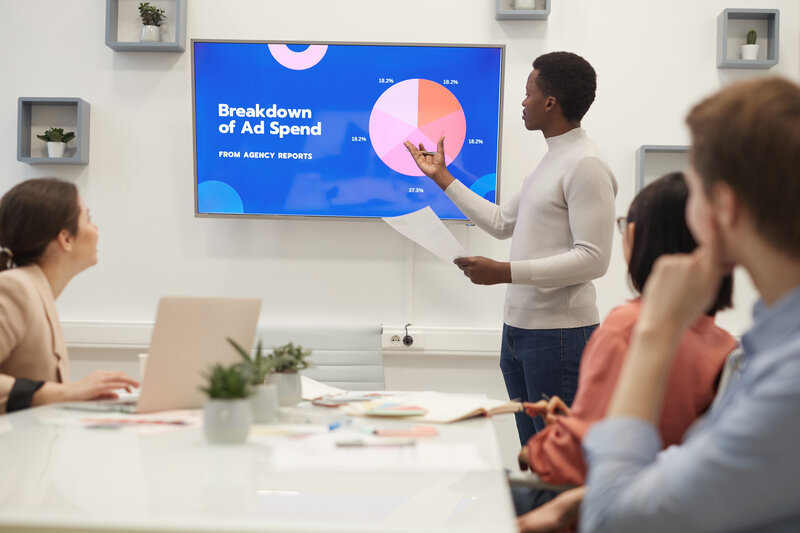
Additionally, Google Ads has the advantage of pay-per-click advertising (PPC), which means you pay a fee every time a potential attendee interacts with your advertisement, not a wholesome payment. With this medium, paying for targeted visits to your event website has become more accessible.
8. Make Use of Event Hashtags
As an extension to leveraging social media platforms to enhance your event’s visibility, ensure you ask attendees and important event stakeholders to use unique but relevant hashtags. This will definitely foster engagement with your audience, elevate your event’s visibility, and establish a lasting and thriving digital footprint.
You can include the hashtag in all your promotional materials, such as posters, newsletters, emails, and social media posts, so that your attendees are well acquainted with it and can start using it. This will only attract more attention to your event.
9. Capitalize on Attendee Referrals
Attendees are a goldmine for event marketers. They bring in new attendees and can also serve as a source of referrals for future events.
Attendee referrals refer to encouraging event attendees to invite their friends, colleagues, or contacts to attend the event. As an event marketer, you can do it through various methods, such as offering incentives for successful referrals or incorporating referral tracking into the event registration process.
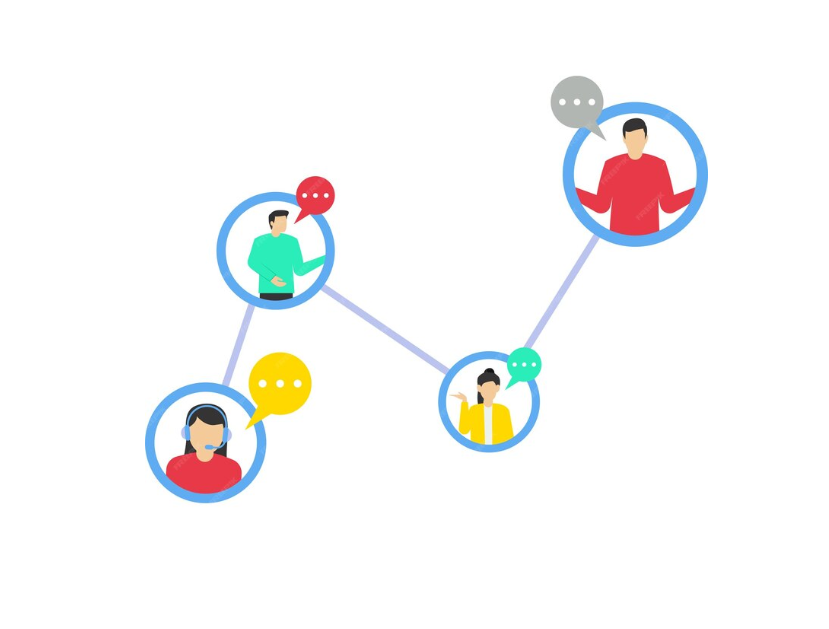
These referrals typically aim to increase event attendance and promote word-of-mouth advertising for the event. You can encourage attendees to referrals by incentivizing those who refer friends or colleagues to your event. These may include giving discounts, full access passes to certain exclusive parts of the event or VIP experiences.
You can also create a referral program where attendees can earn points or rewards for each referral.
10. Use Email Marketing Campaigns
An email marketing campaign is a series of emails sent to a targeted group of recipients to promote a product or service, build brand awareness, or drive website traffic. These campaigns typically combine informational content, promotional offers, and calls to action to encourage recipients to take a specific action, such as purchasing or visiting a website.
As an event marketer, you can use email marketing campaigns to garner more attention towards your event website and get more traffic, influencing them to register for your upcoming event. Such campaigns can be automated or manually triggered and are typically managed using email marketing software.
They are an effective event marketing strategy that can be sent to past or new attendees based on their interests or previous interactions. This increases the likelihood that they will act on your CTA and show interest in your event.
Additionally, email marketing allows easy tracking and measuring success, such as open and click-through rates, which can help improve your future campaigns. It is cost-effective, as emailing requires less than printing a brochure or letter. Furthermore, email marketing can be automated, making sending reminders and updates about your upcoming event easy, which can further help increase attendance.
11. Incorporate Real-Time Social Proof
Social proof is a psychological phenomenon in which people conform to the actions of others in an attempt to reflect the correct behavior for a given situation. People often use social proof in marketing and advertising to increase a product or service’s perceived credibility or popularity.
Social proof is a compelling event marketing strategy based on the principle of social influence. This principle states that people are more likely to take action or decide if they see others doing the same.
Gerilynn Marburger, Director of Global Events at Hewlett Packard Enterprise, talks about how social proof is an effective marketing tool for her in conversation with Ankush Gupta, founder of Eventible, on our podcast, Building Awesome Events.
“Social proof is where people copy the actions of others in an attempt to emulate their behavior in a given situation. It is being thoughtful about how you plan and promote things. And anyone will tell you about marketing one-on-one. It’s getting in the headspace of your customers. Who are they? What do they want to hear? What do they want to see? What do they want to feel? And to me, my definition of social proof and action is thinking about your audience- whether your message will be better received if it comes from you. A customer testimonial, Subject matter expert, a trusted source, like a friend or a family member are all examples of social proof. .. (sic)”
Gerilynn Marburger, Director- Global Events at Hewlett Packard Enterprise
Event marketers can increase the perceived value of the event and encourage more people to attend by showing potential attendees that others are interested in the event or have already registered. That’s where Eventible, the world’s first review platform for B2B events, can truly help. It collects reviews from attendees, speakers, and sponsors and taps into social proof. It allows potential attendees to make informed participation decisions and event organizers to use all of the social proof (thus collected) to grow their event brands.
12. Make the Most of User-Generated Content
User-generated content can help event marketers in more ways than one. Firstly, they act as valuable marketing content. Secondly, they help event organizers and marketers foster community and engagement with their attendees. If, as event marketers, you encourage and amplify their contributions, they will become your most ardent supporters and valuable advocates who will motivate more and more people to register for your future events.
Addressing negative reviews is very important as it can showcase your responsibility as an event organizer or marketer to improve the attendee experience.
13. Collaborate with Important Local Stakeholders
When you collaborate with other local businesses and stakeholders, your event’s reach will expand multifold. While looking for businesses and vendors to collaborate with, look for those targeting similar audiences, as that will help align your goals. As an event marketer, you will likely get higher conversion rates when they promote your event with their followers.

Collaborating with local stakeholders is a compelling event marketing strategy, as partnering with other businesses or important event stakeholders can help expand your event’s reach tremendously. It is advisable to select the right partners who will aid you in your endeavors and who target the same audience as you. This will result in a higher conversion rate as your marketing strategy will align with the interests of your target people.
Collaboration with the right partners can result in effective resource sharing, lessening costs, and raising the event scale, contributing to the event’s overall success. You can also cross-promote your event by collaborating with the right industry associations, media outlets, and local businesses. All these stakeholders will help you achieve your event goals and open it up to a larger and broader audience.
14. Interact & Engage with Attendees Through Contests & Quizzes
The strategy also helps bolster your event’s social media presence with the audience by involving them in the planning stage and making them feel more comfortable and connected with the event’s brand.
During the event, polls, and contests can also bring in the gamification element that drives attendees to be competitive and enables them to partake in the event and keep them invested till the end. Winning a contest or quiz often drives a sense of accomplishment in the participants, further fuelling their interest in attending the event. As an event marketer, you can continue with polls, contests, and quizzes to keep the audiences engaged with the brand even after the event ends. This way, polls, contests, and quizzes can be a significant event marketing strategy before, during, and after the event.
15. Use Linkedin to Garner Attention For Your Event
LinkedIn has become an excellent platform for marketing your event, especially for B2B marketers. This is because you will find all professional contacts as an audience on the platform and can leverage them for networking with influential and important people. You can also use its advanced features to look for the right event stakeholders.
As an event marketer, you can use LinkedIn’s advanced targeting features to zoom in on their search of specific demographics, industries, job titles, and areas of interest. This way, you will be assured that the events will be promoted and advertised to those who would benefit directly. Prior to the event taking place, event marketers can use content to create a lot of buzz around the event. They can write articles, interviews of speakers/sponsors, and the like, and shoot behind-the-stage videos, infographics, and other relevant content related to the event on Linkedin to get people interested in the upcoming event/conference.
You can also aim to get your network involved by sharing the event on your LinkedIn company page. You can also request that your colleagues and speakers share the event with their contacts. Additionally, you can post about the event in related LinkedIn groups for a wider reach, a crucial strategy for social media event promotions.
To know more about promoting an event on LinkedIn, read our article, “10 Sure-fire Techniques to Effectively Promote an Event on LinkedIn.”
16. Create Press Releases
This is the most traditional way to promote an event. Press releases are drafted and distributed for the longest time to inform people about a newsworthy story, event, or incident. It is typically drafted with a headline, summary, body, quote, and boilerplate. You will also find all necessary details regarding the event in the press release, such as its key features, goals, speaker names, sponsors, session details, and other important and relevant information.
All you need to do is mention all key details concerning the event, such as the event name, date, time, venue, and other information that could influence the audience to come and participate in the event. You could also cite the reason behind why the event is being held. You must also include information about scheduled guests expected to attend the event on the said date.
You can use tools like PR Newswire, Business Wire, or PRWeb to draft and distribute your press release among a larger audience. Sometimes, hiring a PR agency to help with promotional endeavours can help reach a more targeted audience.
As an event marketer, once you send out a press release, you can gauge its success by monitoring and analyzing key metrics and indicators. These comprise website traffic, media coverage, social media engagement, registrations, and conversions. You can contact journalists, media outlets, bloggers, and influencers as part of the media coverage. Website traffic gauges the number of visitors directed to your event website or landing page after reading the press release, how long they stayed on the website, and whether you received any registrations because of it.
17. Design an Engaging Event App
You can also build an entire event/conference app to provide attendees with all the necessary information regarding the upcoming event without any hassles or complications. You can use the app to streamline event schedules, provide real-time updates, collect and retain necessary data during registrations, and interact with audiences, among other things.

To know more about these event apps and their typical features and uses, you can check out our article titled “7 Best Conference Apps: The Must-Have Tools for Event Attendees.
18. Use a Pre-Event Webinar or Live Q&A
Pre-event webinars are an excellent way to generate anticipation among the audience about an event and can provide them with the sneak peek they crave before the event’s commencement. They can also get all their queries and concerns answered at such webinars. These webinars and live Q&A sessions can also act as a preview for the event to audience members worldwide.
The pre-event webinars will also help you generate leads and possible registrations for the upcoming event. Webinars can also have panel sessions, which is the perfect way to share expertise and information regarding the event in question.
19. Develop a Content Countdown
You can resort to content countdown posts like “10 days to go” or “5 days to go” articles and posts to build momentum and create anticipation for the event. These countdown clocks further capitalize on emotions like the fear of missing out, excitement to learn about the event, and the sense of unrelenting urgency to influence potential attendees to register for the event. Creating a sense of exclusivity can encourage customers to take the desired action before the timer runs out.
How to Gauge the Performance of Your Event?
The best way to gauge the performance of your event is to draft and circulate post-event surveys. A simple survey will help you evaluate your event, learn what people thought about it, and get recommendations for future editions.
You can have people rate your event on a scale, which will help you gain insight into attendee satisfaction. Ask how they would rate their event experience on a scale of 1 to 5. You’ll be able to find an average and use that as a benchmark for future events. You can ask them why they gave the score, which will eventually allow you to obtain valuable comments that will help you understand why they gave the score they did, thereby enabling you to make the necessary changes to improve future events.
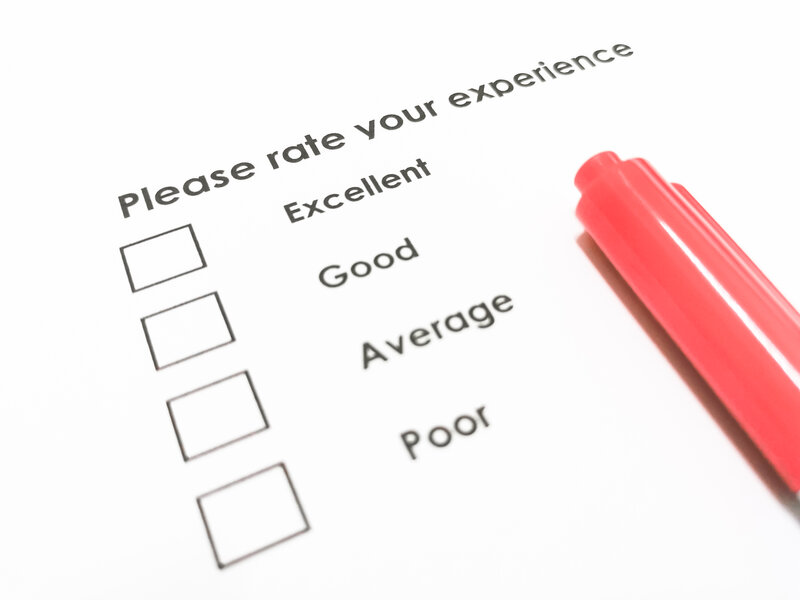
That is where a third-party review platform like Eventible comes into play. Utilizing trustworthy survey questions and voice-recording polls from previous events over time, Eventible is a platform that provides data on stakeholders’ expectations for each event and what organizers may do to ensure their happiness. Visit the website for additional details.
You can also read our article, “53 Event Survey Questions For Maximum Responses,” to learn the different questions you could include in your post-event survey questionnaire.
How to Evaluate Audience Engagement and Attendance Rates?
It is naive to assume that everyone who registers for the event will actually attend it. Perhaps that’s why you need to calculate your event’s attendance rate. Ensure that you note down the number of attendees who arrive at your event and compare the number of actual attendees to that of registered attendees.
You must also note the differences in the ticket types (premium or basic), packages, or any other attribute you had offered for your event. This will help you evaluate and understand the demography of those who purchased the tickets and attended the event.
While using different channels to promote your event, you can use the metrics to gauge and analyze the ones that worked for you and those that were not so fruitful so you know better which platform to go in for the next time. If your event in question is a virtual one, it will be easier for you to track the level of engagement and attention of your audience.
Also, if you videotaped the event, look at the interaction and views on your video(s). Many people may register expecting the event to be videotaped so they can watch it later, and you’ll want to ensure that people are engaged with the topic. All these efforts will help you improve your events year on year, thereby improving the audience experience as well.
Key Takeaway
To summarize, a well-crafted event marketing strategy provides the foundation for hosting a successful and memorable event. Event marketers like you can leave a lasting impression, increase attendee engagement, and differentiate themselves in an ever-more competitive field using this guide’s unique techniques and technologies. As we approach 2025, the key to event success depends on combining originality, adaptability, and a thorough awareness of audience needs. With the appropriate strategy, your events will meet and exceed expectations, leaving a lasting impression on each attendee.

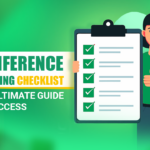
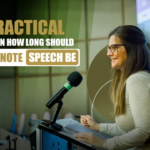

Comments are closed.